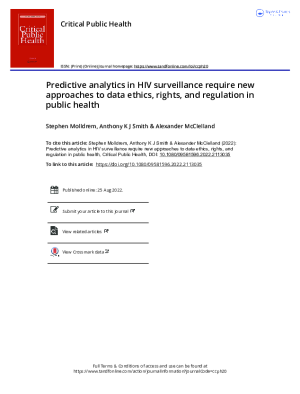Predictive analytics in HIV surveillance require new approaches to data ethics, rights, and regulation in public health
In this commentary, the authors describe ethical problems arising from big data interventions in HIV surveillance and suggest some potential pathways for reform.
